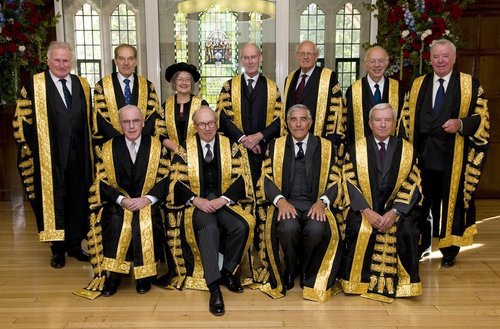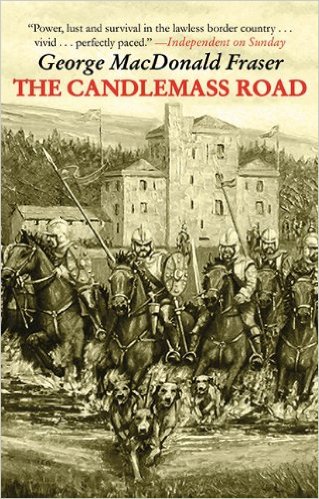
12/11/2016
[Adapted from the latest Radio Derb, now available exclusively on VDARE.com.]
I've been meaning to say something about Brexit, the referendum in Britain six months ago to leave the European Union. It’s still causing a huge constitutional fuss over there.
I've hesitated to comment, because, in the first place the little I ever knew about the British Constitution has long since drained away down the foggy ruins of Time, and in the second place I don’t think Britain’s foggy affairs are of much importance to the U.S.A.
There seems to be some interest among listeners, though. And as a true-born Englishman, with the blood of Alfred the Great flowing in my veins along with some residual traces of custard, marmite, and treacle, I ought to make an effort to pronounce authoritatively on the rights and wrongs of Brexit. So here goes.

But here’s how out of date my constitutional knowledge is: I didn’t know that Britain has a Supreme Court.
Where the hell did that come from? They never used to have one. Court of final appeal used to be the Law Lords sitting in Parliament — in, of course, the House of Lords.
I blew the dust off my old school copy of Taswell-Langmead’s English Constitutional History, 1946 edition, and looked up some appropriate index entries. As always with that magisterial work, though, I soon got lost in the fourteenth century among the King’s Continual Council, Tallagio non Concedendo, and the Maltolt of Wools.
Of the year 1406, for example, Taswell-Langmead (who was just one guy: it’s a double-barrelled name) writes:
The political scene in fact was sombre. Scots ravaged the north; pirates controlled the English Channel; Wales was in revolt aided by French and Spanish arms and an English Earl; religious dissidents attacked the Church and alleged that Richard II was in Scotland; the king was ill and listless.Well, who wouldn’t be? You think we have problems!
Taswell-Langmead has no mention of a Supreme Court. Britain has somehow acquired one, though.

Digging around, I see that this innovation was the brainchild of the sinister Tony Blair. In other words, it was the demon spawn of a wily mediocrity who despised his own nation and all its traditional ways, and did his utmost to swap out Britain’s deplorably white Anglo-Saxon population for the morally superior people of Bangladesh, Nigeria, and Pakistan.
As a result of Blair’s initiative, the Brits got a Supreme Court, independent of Parliament, in 2009. Britain is now engaged in a three-way American-style tussle between the authority of this court, the authority of Parliament, and the authority of the Executive — which is to say dithering nonentity Theresa May and her cabinet.
The constitutional point at issue: whether the Executive can take Britain out of the EU without further parliamentary debate — without the formal assent of both houses of Parliament, Commons and Lords, perhaps even — I’m not clear on this point — without actual legislation.
The courts — not this newfangled Supreme Court, the regular courts — ruled last month that parliamentary action was required. That’s now under appeal to the Supreme Court.
Meanwhile the Prime Minister has asked the House of Commons to approve her notifying the EU next March of Britain’s intention to leave. The Commons did so after a six-hour debate, voting 461 to 89.[ Theresa May warns delay in launching Brexit would be catastrophic for trust in politics as rebels in Commons vote threaten trench warfare, By James Tapsfield, Mailonline, December 8, 2016]
That’s not the full parliamentary action the courts insisted on, though, so the whole business is still up in the air.
To sum up: the Brits had a referendum, in which a slim majority voted to leave the EU. The House of Commons has approved the government telling the EU about this, since presumably it wasn’t reported in the newspapers over there on the Continent.
Now we just have to hear from the Supreme Court about what else, if anything, Parliament must do; also, at some point I suppose, from the upper chamber, the House of Lords.
How does all this play into the large international theme of popular will versus globalist elites? Somewhat messily — like our own November election result, with its constitutional win for Trump against a popular vote for Clinton.

There is not much doubt about the Eurowhore inclinations of Britain’s Supreme Court justices. On the other hand, the supremacy of Parliament, with the House of Commons taking most of the weight, is not a bad principle. As suspicious as I am of the justices and their preferences, and as righteously as I loathe Tony Blair and all his works, I hope the Supreme Court will reaffirm the supremacy of Parliament.

It’s a mess, though, and the political scene over there is sombre. Still, at least Scots aren’t ravaging the north.
And what about Europe? How are they getting on over there with populist resistance to the nation-wrecker elites?
Mixed news this week, I’m afraid.
There’s plainly some deep systemic problem there. Prime Minister Matteo Renzi proposed some constitutional reforms, simplifying and centralizing the system. Whether they would have solved the problem, I’m not qualified to say. You'd think people would want something done, though.
Apparently not, not what Renzi was proposing, anyway. Last weekend’s referendum rejected Renzi’s reforms. It was a big vote for the status quo. No, Italy’s referendum is not the same as Trump or Brexit
There’s a lot of spin on nationalist websites that this was another result in the Brexit-Trump category, indignant patriots voting against globalism. It really doesn’t look like that to me, though. My personal compass on these matters is the hyper-globalist, Open-Borders, anti-Brexit, anti-Trump magazine The Economist. That magazine urged Italians to vote No on Renzi’s reforms, as they did. [Why Italy should vote no in its referendum | The country needs far-reaching reforms, just not the ones on offer, November 26th 2016]

It’s all moot, anyway. Italy has been ferrying in illegals from sub-Saharan Africa at an ever-accelerating rate: thirteen and a half thousand just last month — that’s compared with only three thousand in November last year. [Italy Breaks Immigration Record in 2016, by Thomas D. Williams, Ph.D., Breitbart.com, December 11, 2016]
There’s beaucoup more where they came from, and no sign the Italians can muster the will to turn off the spigot.
If Italians think their government this past seventy years has been dysfunctional, wait till the lads from Lagos and Ouagadougou take over.
Italy’s a goner.
The New York Times was gleeful [Austria Rejects Far-Right Presidential Candidate Norbert Hofer, By Alison Smale, December 4, 2016]. They couldn’t wait to tell us that Hofer’s party, the Freedom Party, is "far-right" and was "founded in the 1950s by former Nazis."
For goodness' sake! Pretty much every adult in 1950s Austria was either a former Nazi or a former Communist. The Sound of Music is not a historical documentary.

Meanwhile, Dutch nationalist Geert Wilders, leader of a major political party also named the Freedom Party, was convicted in a court of law for the crimes of discrimination and inciting hatred. [Geert Wilders GUILTY of hate crimes against Moroccans after anti-migrant rally in Holland, by Simon Osborne, Express.co.uk, December 9, 2016]
What Wilders had actually done was to promise a rally of his supporters that if he got power, there would be fewer Moroccans in Holland.
No sentence has been announced, and Wilders has said he'll appeal.
I am quietly amazed that this is even news. Who thinks that foreign scofflaws should be awarded public goods at the expense of native taxpayers? Well, of course, all Goodthinkful persons do — everybody except those, you know, far-right ex-Nazis.
France has an election coming up next Spring, and Ms. Le Pen is a leading candidate for President. Current polling says she'll likely make it to the final runoff in May, but then lose big to an establishment candidate.
There you see a problem with all these European nationalist movements. There seems to be a ceiling in their support, a ceiling well below fifty percent. Most voters prefer Establishment suits like the winner in Austria.
Even where proportional representation makes coalition governments necessary, nobody wants to be in coalition with the nationalist party, because … you know. Far-right…ex-Nazi…nativist…Hitlery Hitler.
Christian missionaries in the Far East used to talk — perhaps they still do — about the twenty percent ceiling. In places where Christians have been able freely to proselytize among East Asians — places like Hong Kong, Taiwan, Japan, South Korea — under favorable conditions you can convert around twenty percent of the locals, but after that you get stuck.
(That’s the way I remember hearing it, anyway; although the CIA World Factbook gives South Korea as 32 percent Christian. All right: a thirty percent ceiling.)
Politics and religion draw on some of the same mental modules. So perhaps there is a similar ceiling for nationalist politics among white Europeans. Perhaps the nationalist parties over there are doomed never to get above thirty percent support — and so never to get power.
If that’s the case, and given the number of Third Worlders pouring in to the continent to swing the balance even further against native nationalism, Europe is toast.
John Derbyshire writes an incredible amount on all sorts of subjects for all kinds of outlets. (This no longer includes National Review, whose editors had some kind of tantrum and fired him. ) He is the author of We Are Doomed: Reclaiming Conservative Pessimism and several other books. He’s had two books published by VDARE.com: FROM THE DISSIDENT RIGHT (also available in Kindle) and From the Dissident Right II: Essays 2013. His writings are archived at JohnDerbyshire.com.
This is a content archive of VDARE.com, which Letitia James forced off of the Internet using lawfare.